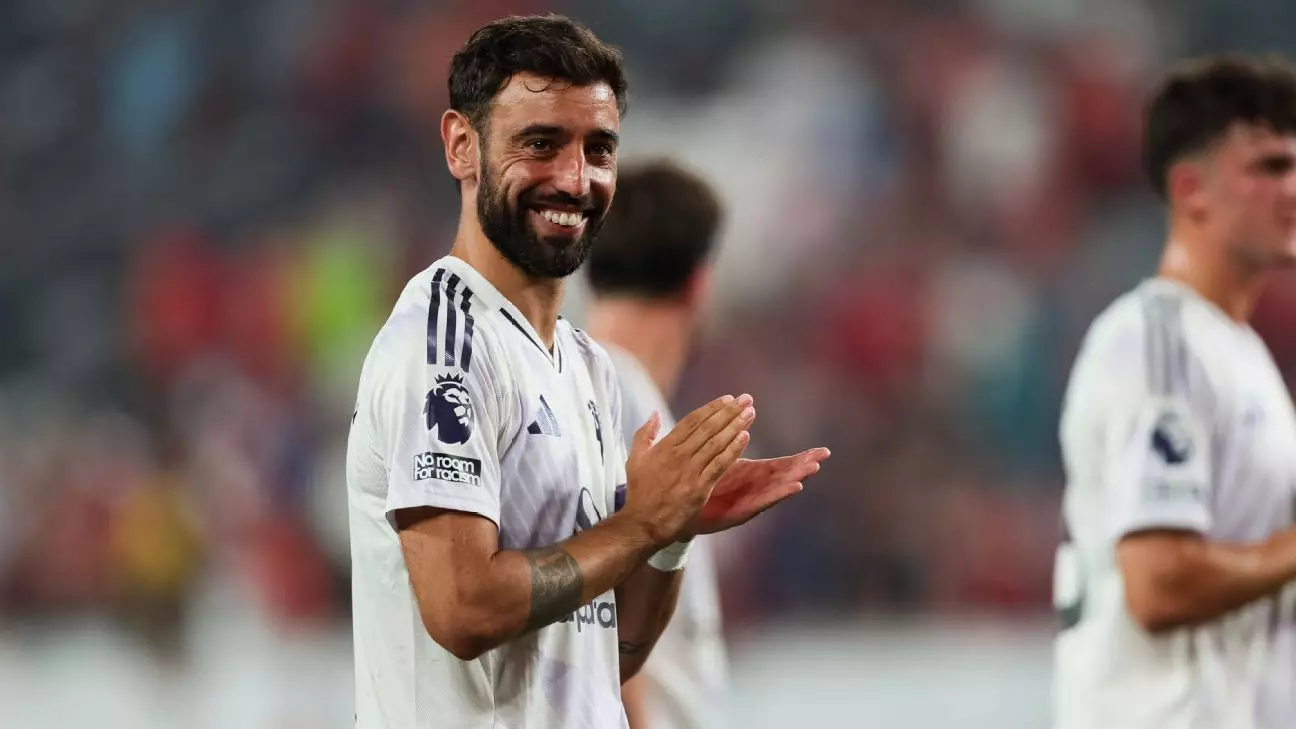In the whirlwind of summer transfer speculation, Bruno Fernandes’ choice to remain at Manchester United proved to be a turning point for both the player and the club. Rumors of a lucrative move to Saudi Arabian giants Al Hilal created a narrative of potential upheaval, yet Fernandes’s decision to stay underscores his commitment and understanding of his importance within the squad. Such loyalty is not merely sentimental; it carries strategic weight. Fernandes has emerged as United’s heartbeat, a player whose presence influences the team’s identity and effectiveness. His ability to score critical goals—demonstrated vividly in the preseason victory over West Ham—highlighted that his influence extends beyond mere numbers.
The decision to stay is also a testament to Fernandes’ awareness of his evolving role. As Manchester United navigates the turbulent waters of rebuilding and integration under new management, his steadfastness offers stability. His move away into foreign markets could have fractured the team’s cohesion, but instead, Fernandes has become a pillar, reinforcing the notion that leadership requires a sense of responsibility as much as talent. It’s a reminder that sometimes, loyalty and tradition drive club success as strongly as tactical adjustments or squad strengthened by signings.
The Tactical Shift and Fernandes’ Leadership
Under new coaching directions, Fernandes has adapted impressively, demonstrating a versatile skill set that enhances United’s tactical flexibility. Manager Ruben Amorim’s strategy of employing Fernandes as a No. 10—rather than a deep-lying midfielder—illustrates a strategic evolution. The preseason game against West Ham allowed Fernandes to showcase his offensive prowess, scoring both from a penalty and a remarkable long-range shot. This new role signifies more than just a positional change; it signals Fernandes’ importance as an offensive catalyst.
The tactical flexibility underscores a broader point: Fernandes is not just a scorer or assister but a central figure whose influence extends into leadership, both on and off the pitch. Amorim’s comments about Fernandes’ work ethic, leadership, and adaptability paint a picture of a player who is integral to both the tactical plans and the spiritual health of the squad. It’s a reminder that modern football demands multifunctional leaders—players who can motivate, organize, and produce—qualities Fernandes clearly embodies.
Challenges and the Path Forward
Nonetheless, Fernandes’ leadership isn’t without its complexities. Amorim remarks on his tendency to sometimes push himself too far, seeking to help teammates at the cost of focus. Such traits highlight the pressures elite players face to constantly prove their worth, often at the expense of their mental and emotional well-being. It’s a delicate balance; Fernandes’ fierce desire to succeed fuels his performances but also risks leading to frustration and lapses in concentration.
For Manchester United, Fernandes is more than a top scorer; he’s a figure who can galvanize a team striving to regain its former glory. His importance transcends goal tallies—his presence underpins tactical stability and team morale. As United embarks on this new chapter, Fernandes’ leadership and commitment will be vital to translating preseason promise into consistent competitive excellence. His decision to stay, coupled with his evolving role, cements his status not just as a talented midfielder but as an indispensable leader shaping the future of the club.


Leave a Reply